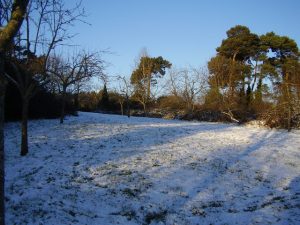Local groups are increasingly taking over swathes of the country.
.
The District Council allows communities to apply for recreation grounds and village pubs to become ‘assets of community value’.
There was an attempt in 2015 to secure the Knowle park as such – but it failed:
There is also the “community right to buy” such assets:
We have had a number of nominations since the government introduced Community Right to Buy in 2012. Find out more about the successful and unsuccessful nominations.
Assets of community value – East Devon
.
There is more and more interest in ‘community buyouts’ where “communities around the UK are clubbing together to create new nature reserves by raising money themselves”, as recounted in the i-newspaper:
.
‘The future has to be different’: How communities around Britain are clubbing together to stick up for nature
Local groups are increasingly taking over swathes of the country to restore them to past glory
Nikki Williams is policy director at The Wildlife Trusts, a federation of 46 independent wildlife conservation charities covering the whole of the UK. She said she could “safely say” there had been an increase in people taking conservation matters into their own hands as awareness about climate change and biodiversity grew. “If you look around you’ll see a lot of local heritage trusts, natural trusts, groups or ‘friends of’ communities,” she added. “They really do take on the responsibility of those areas that have been saved or are in a bad way and need spaces for nature to be restored.”
.
As the piece suggests, however, the right to buy is strongest in Scotland:
Community rights to buy and take over land and buildings – Citizens Advice Scotland
.
But there are all sorts of projects across the UK springing up, as reported in the Guardian a few months ago:
.
Wildlife charity plans to buy UK land to give it back to nature
Heal Rewilding will find lower-grade land and let it recover naturally, rather than planting
A new national wildlife charity called Heal Rewilding is planning to buy ecologically depleted land across Britain and give it back to nature. “We urgently need everyone together to help make nature’s recovery happen,” said Stannard. “Our sites will be places where wildlife can return and thrive, but they will also become sanctuaries for people. Our vision is to heal the land, heal nature and heal ourselves.’’
Their aim fits in with the government’s Nature Recovery Network, a pledge to support thousands more acres of land becoming wildlife reservoirs. There has been a surge in public interest in wildlife habitat creation in recent months.
The RSPB’s director for conservation, Martin Harper, welcomed Heal’s plan: “Our incredible wildlife needs all the help it can get. Nature habitats provide amazing benefits for people too.”
However a National Farmers’ Union spokesperson questioned where enough spare land could be found: “Rewilding vast tracts of British farmland would mean reducing UK food production and importing food from other parts of the world, potentially produced to standards that would be illegal to produce here in the UK. Any broad scale changes to farmland in the UK need to be properly thought through.”
Wildlife charity plans to buy UK land to give it back to nature | Environment | The Guardian
(15% of UK bird species is at threat of extinction).
.
 Similar things have happened this year in the Sid Valley:
Similar things have happened this year in the Sid Valley:
.
photo: File: A dusting of snow – geograph.org.uk – 1660482.jpg – Wikimedia Commons